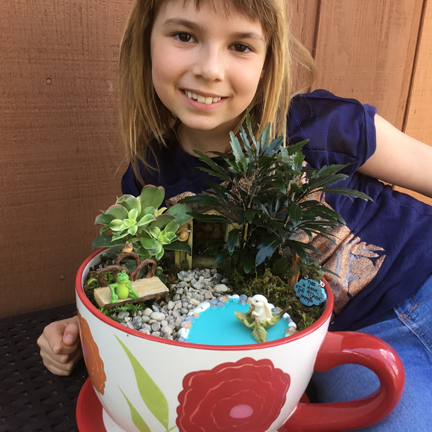What qualifies as a maker space? What hands-on experiences have educational value? It is a reasonable question and the answer likely depends on what is motivating to the individual learner. It seems that too often some ideas like maker spaces are defined by those who want to create them and have a personal view of what experiences might be productive.
This is a “fairy garden” created by a granddaughter. Would you consider it the product of a maker space. There are no computers or robots. There is no engineering scaled to the age of a young learner. What there is an impressive creative product generated by a young person with a long-standing interest in a topic and the willingness to learn about that topic on her own.
If you are “into” the maker space concept, I am just guessing that you do not have the resources for this kind of project in your space. This is what makes making a challenge for educators. Making is not defined by you, it is defined by the learners.


You must be logged in to post a comment.